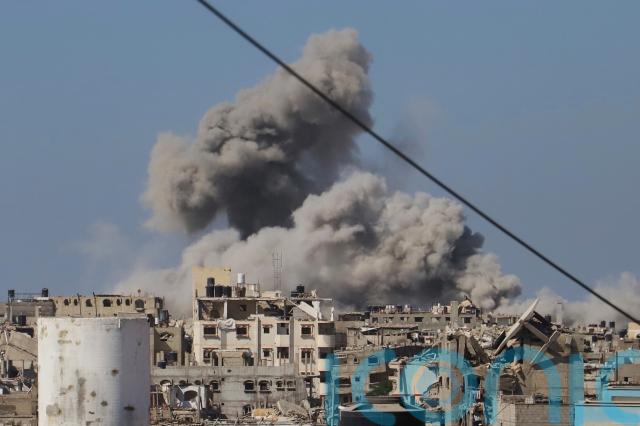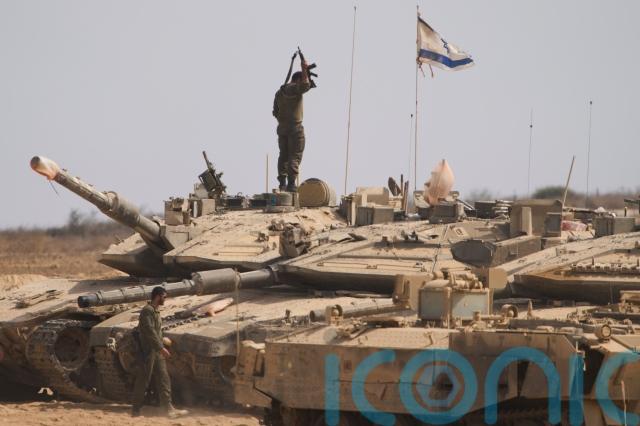
Israel’s military has said it will call up 60,000 reservists ahead of an expanded military operation in Gaza City.
Many Palestinians have chosen to stay in the area despite the danger as seeking safety seems increasingly futile amid the growing humanitarian crisis.
Calling up extra military reservists is part of a plan defence minister Israel Katz approved to begin a new phase of operations in some of Gaza’s most densely populated areas, the military said.

The plan, which is expected to receive the chief of staff’s final approval in the coming days, also includes extending the service of 20,000 additional reservists who are already on active duty.
In a country of fewer than 10 million people, the call-up of reservists is the largest in months and carries economic and political weight.
It comes days after hundreds of thousands of Israelis rallied for a ceasefire, as negotiators scramble to get Israel and Hamas to agree to end their 22 months of fighting.
Meanwhile, rights groups have warned that an expanded assault could deepen the crisis in the Gaza Strip, where most of the roughly two million inhabitants have been displaced, many areas have been reduced to rubble and the population faces the threat of famine.
An Israeli military official, speaking on the condition of anonymity in line with military regulations, said troops will operate in parts of Gaza City where they have not been deployed yet and where Israel believes Hamas is still active.
Israeli troops in the Zeitoun neighbourhood of Gaza City and Jabaliya, a refugee camp in the northern Gaza Strip, are already preparing the groundwork for the expanded operation, which could begin within days.
Though the timeline was not clear, Prime Minister Benjamin Netanyahu’s office said on Wednesday that Mr Netanyahu “has directed that the timetables… be shortened” for launching the new offensive.
Gaza City is Hamas’ military and governing stronghold, and one of the last places of refuge in the northern Strip, where hundreds of thousands are sheltering.

Israeli troops will be targeting Hamas’s vast underground tunnel network there, the official added.
Although Israel has targeted and killed much of Hamas’s senior leadership, parts of Hamas are actively regrouping and carrying out attacks, including launching rockets towards Israel, the official said.
Mr Netanyahu has said the war’s objectives are to secure the release of remaining hostages and ensure that Hamas and other militants can never again threaten Israel.
The planned offensive, which was announced earlier this month, comes amid heightened international condemnation of Israel’s restrictions on food and medicine reaching Gaza and fears that many Palestinians will be forced to flee.
“It’s pretty obvious that it will just create another mass displacement of people who have been displaced repeatedly since this phase of the conflict started,” United Nations spokesman Stephane Dujarric told reporters.
Associated Press journalists saw small groups heading south from the city this week, but it is unclear how many others will voluntarily flee.
Some said they would wait to see how events unfold before moving yet again, with many insisting that nowhere is safe from airstrikes.
“What we’re seeing in Gaza is nothing short of apocalyptic reality for children, for their families, and for this generation,” Ahmed Alhendawi, regional director of Save the Children, said in an interview.
“The plight and the struggle of this generation of Gaza is beyond being described in words.”
Subscribe or register today to discover more from DonegalLive.ie
Buy the e-paper of the Donegal Democrat, Donegal People's Press, Donegal Post and Inish Times here for instant access to Donegal's premier news titles.
Keep up with the latest news from Donegal with our daily newsletter featuring the most important stories of the day delivered to your inbox every evening at 5pm.